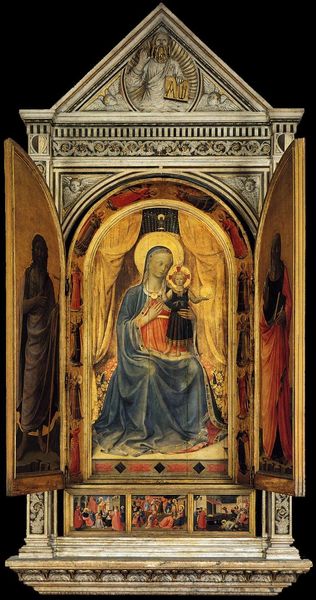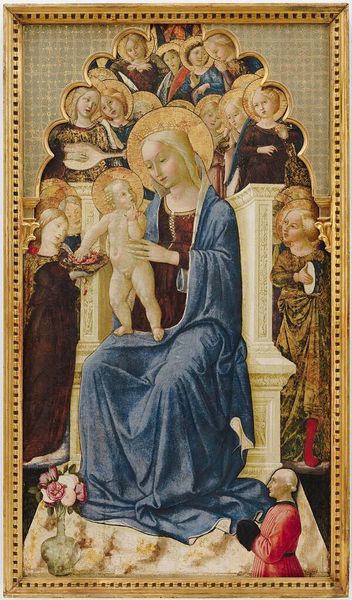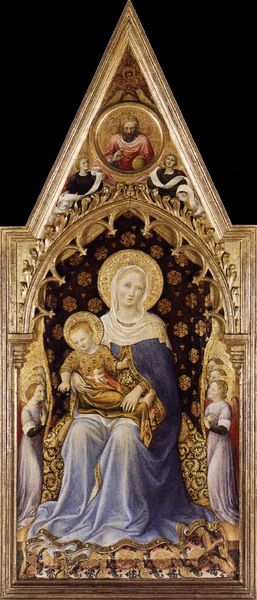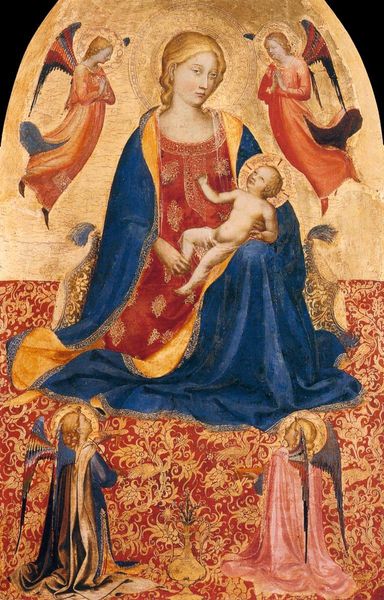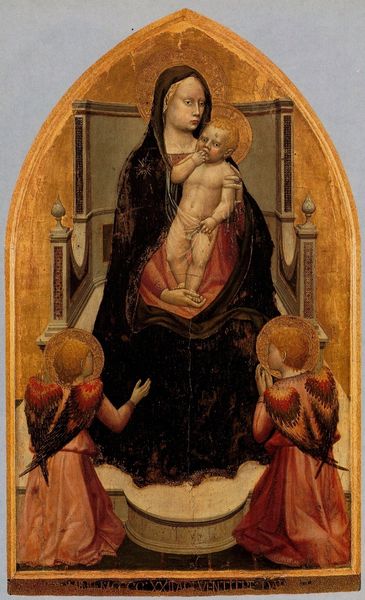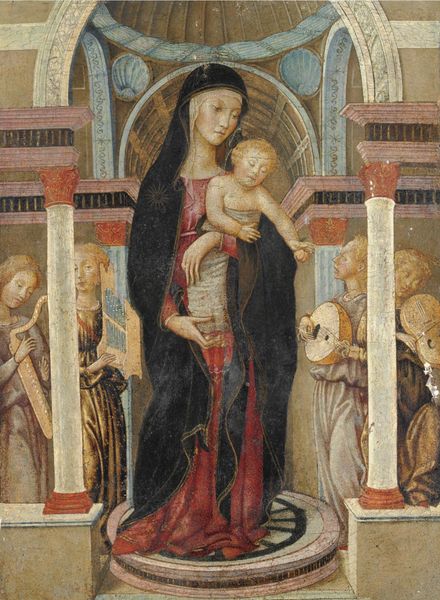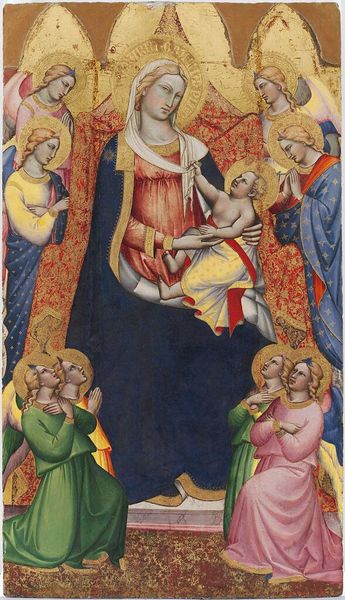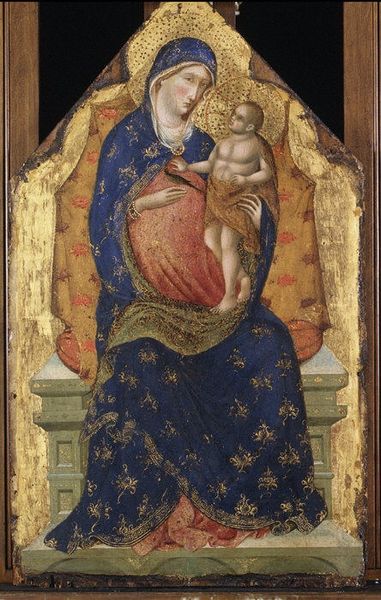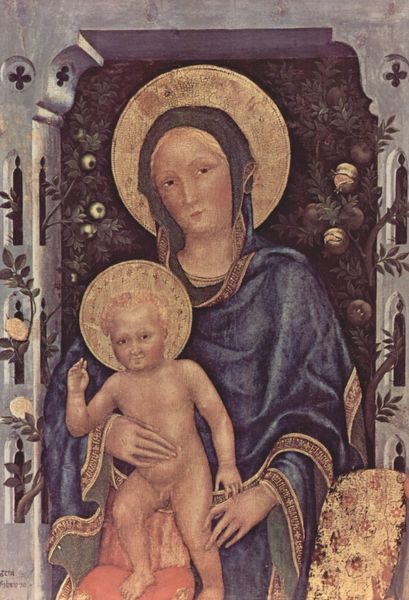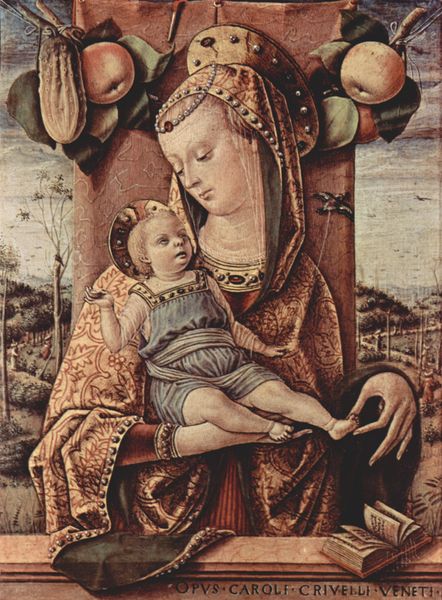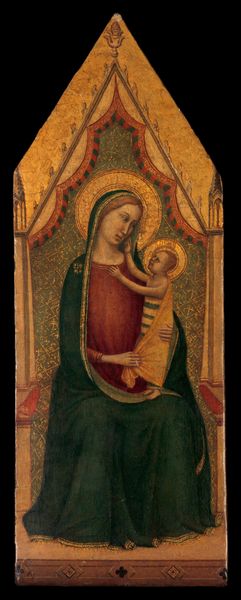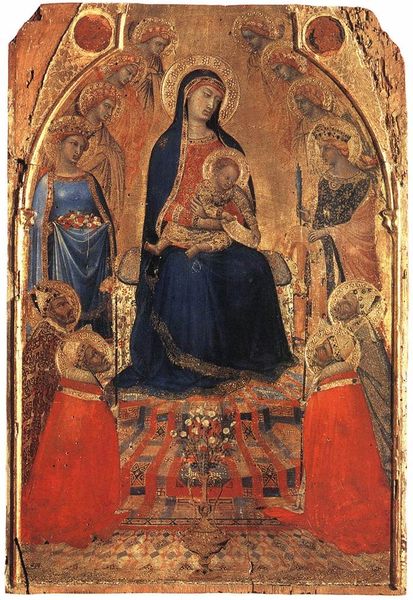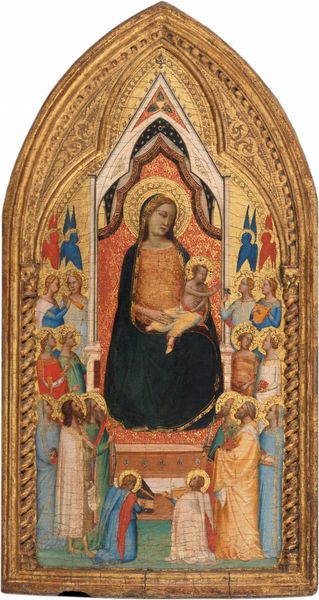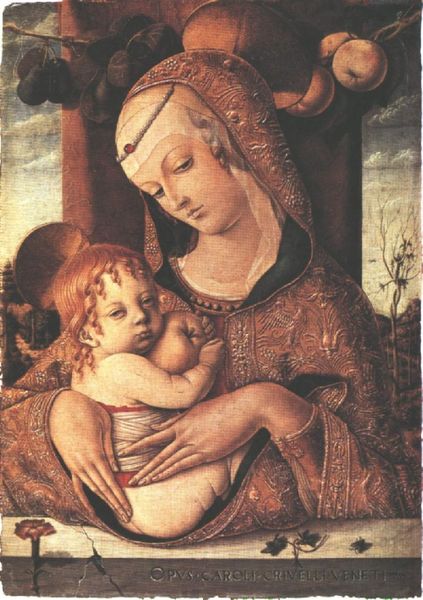
panel, tempera, painting
#
portrait
#
panel
#
mother
#
tempera
#
painting
#
landscape
#
figuration
#
handmade artwork painting
#
oil painting
#
child
#
history-painting
#
italian-renaissance
#
early-renaissance
Dimensions: 33 x 50 cm
Copyright: Public domain
Pisanello created this small panel of the Madonna and Child, around 1420, most likely in Verona, Italy. It's a beautiful example of the International Gothic style, which privileged decorative detail and courtly elegance. But what social function did such images serve? We know that confraternities—religious brotherhoods—were becoming increasingly important at this time, and their chapels were frequently decorated with these kinds of images. The style itself speaks to the tastes of wealthy patrons. Pisanello's emphasis on luxurious surface detail, from the gold background to the Madonna’s elaborately patterned dress, chimes with the aristocratic culture of the Renaissance courts. In addition, the presence of the quail may refer to the story of the Exodus in which God sends quail to feed the Israelites. To understand the painting more fully, we need to know more about the confraternity or individual who commissioned it. Institutional records, as well as social histories of Renaissance Italy, help us to understand how art played a role in the life of the period.
Comments
No comments
Be the first to comment and join the conversation on the ultimate creative platform.
